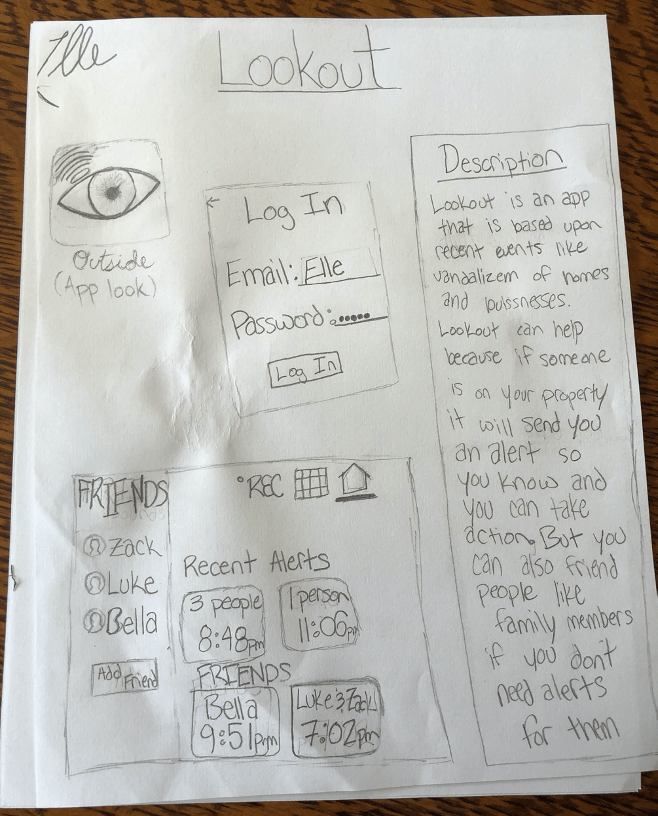The UnThunkable: Teaching Middle School and High School Girls Programming During a Pandemic
By: Margo Long, OSU Extension Educator, 4-H Youth Development, Marion County
During COVID-19 and the time of ultimate screen time fatigue, why would anyone want to add another virtual experience to the calendar? Because the mission to close the gender gap in technology and change the image of what a programmer looks like and does daily, doesn’t stop.
I recognized the need after receiving much positive feedback from a five-week series designed to introduce youth to both the 4-H program and coding. By creating a connection with women who incorporated technology into their everyday work and including unplugged activities, I realized I could contribute to “cracking the gender code.”

According to Girls Who Code, in 1995 only 37% of computer scientists were women. The percentage will continue to decline to 22% by 2022, if not addressed. It has been recognized girls lose interest in computer science between the ages of 13 and 17.
Program Overview
Incorporating the Girls Who Code educator guide, activities, and researching other online resources and video, 4-H World Changers was a five-week series featuring live instruction customized with hands-on, interactive learning opportunities for participants. Each session included custom presentations that walked participants through visual design, variables, conditionals, and functions –all components necessary to create a user-friendly mobile application.
Selecting the Technology
With hundreds of different coding languages in the world, each can be used to create something powerful. A simple Google search leads to an overwhelming number of computer science curricula. So, how do you choose? The goal was to keep in mind my own personal experience level (more HTML and CSS), as well as that of program participants. It’s easier to start with the basics before diving into text-based languages.
This series utilized a web-based program that allows apps to be created for both Android and iOS devices, which eliminates the compatibility barrier. Thunkable allows novice users the ability to build apps by utilizing the “drag and drop” method of components to connect them together with block coding.
Creating the Connection
One of the most important components of the series is to ensure youth realize women exist in the technology industry. Many times, women not highlighted in the media or mentioned in textbooks. Each week showcased women from diverse backgrounds: some who grew up coding and are now successful leaders in their field and others who have found success in business, in teaching, or as entrepreneurs learning to code as adults. The goal was to empower and inspire girls to understand how their passions for something can be transformed into a career within technology. Each woman introduced the relationship between their career exploration to the correlation between one of the program’s values and the coding lesson.
Fran Kalal was featured in the second session of 4-H World Changers to help emphasize the importance of visual design for mobile applications.
Value of Virtual Programs
In this time of uncertainty, there was no better opportunity to continue the 4-H program mission. By providing experiences to bring out youth’s potential, their passions and drive helped empower them to exhibit bravery, activism, and resilience by establishing connections with similar youth, all from behind a computer. At the conclusion of the program, the aim was for participants to gain a better understanding of the following:
- Bravery – In an unprecedented situation, youth and adults are adapting to a new way of living almost daily, so it is important to stay brave in the face of uncertainty.
- Connection – Keeping with a set routine can be impactful and meeting with others helps combat the challenge of social isolation.
- Activism – Sharing the world of technology with girls has a powerful and potential positive impact within their communities. This program empowered girls to learn something new and use code to create tools that provide support and build connections during a challenge.
- Resilience – Learning virtually requires flexibility and perseverance. Becoming frustrated or not understanding something is acceptable, but teaching problem-solving skills is vital.
For more information contact Margo Long, long.1632@osu.edu.
Peer-Reviewed: Sally McClaskey, OSU Extension Program Manager, Education & Marketing. She develops and directs educational programs at the Nationwide & Ohio Farm Bureau 4-H Center.

